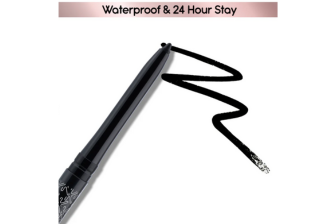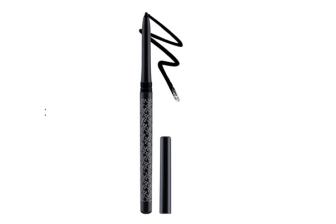


Kay Beauty Kajal
KohlStar 24 Hour Kajal
Special Price
Product Details
A comprehensive interpretation and application of the Rules
from the Convention on the International
- Regulations for Preventing Collisions at Sea, 1972, (IRPCS), also known as COLREGS, ROR, Nautical or Navigation Rules is provided in this guide, published in May 2011 and revised regularly.
- The aim is to develop core concepts and fundamentals for best practical application of the Rules. A feature of the rules is that they mostly use descriptive adjectives, not numbers;
- they apply equally to all types of vessels, are cross referred to, and at times, even override each other.
- Their application is dramatically different when 'vessels are in sight of one another' versus when 'not in sight and in or near an area of restricted visibility'.
The requirements appear confusing, contentious and difficult to comprehend; with even experts reaching differing interpretations as seen in many conflicting court judgments and investigation reports. The book is structured on distance learning self-study methodologies, intertwined with case studies, related regulations. Develops on the 'Construing and Complying' element of the rules to prevent collisions at sea between ships of any kind. The elaborate explanations and expert interpretation leads to fuller understanding and enhance achieve mastery of the subject. Designed for both, beginners and the experienced, the flow makes for seamless reading, with senior level in-depth studies placed separately in text boxes. The interactive learning involves tasks, quizzes, exercises, case studies, court rulings; all amalgamated with watchkeeping requirements from STCW and SOLAS Conventions; and linked to basic ship handling principles.
There are 176 self-assessment questions covering the full spectrum of the subjects. Collision statistics continue to remain a cause of concern. IMO studies show that for the last 30-plus years, navigational accidents hovered around 30% of all shipping accidents. An IMO bulletin, "Maritime Knowledge Centre" of 2010, states that more than 90% of collisions are attributable to human factors. The Maritime Safety Committee attributes this to "deficiencies in maritime education and training of seafarers" and states that "there is an issue with the competency of seafarers in complying with the Rules". MAIB analysis from 1994 to 2003 states that 55% of maritime accidents were collisions. Marine insurance pays almost 50% of claims towards navigational accidents, the majority being collisions. EU Sponsored research published in 2015 states that even “maritime educators do not fully understand the rules or their proper application”. Analysis of qualified officers undertaken by the author shows that they achieve around 50 to 55% marks in different types of open book assessments (Seaways September 2015: Y. Chhabra and IMO paper at IAMU AGM in October 2015: Andy Winbow).
Capt. Chhabra states, "It is not simply lack of knowledge, failure of lookout or loss of situational awareness, the usually stated reasons for collisions. It actually is an inaccurate interpretation of the Rules, improper understanding, linked with unsatisfactory awareness of watchkeeping requirements, and even basic ship handling principles, which lead to incorrect working at sea and related accidents". It is a very good book for trainees up to Masters, with clear explanations and links to the STCW Convention watchkeeping requirements, ship handling, management aspects and case studies, which makes it a comprehensive guide for practical application. It also provides a very good source of reference for both educators and examiners. Capt. Andrew Winbow Former Assistant Secretary-General, Director Maritime Safety Division, International Maritime Organization (IMO)
Product Details
Description
Mini Crayon Lipstick & 36HR Eyeliner free on orders above Rs.799
Ingredients
Cyclopentasiloxane, Hydrogenated Microcrystalline Wax, Iron Oxides
Offers
Available
Ratings and Reviews
You must be logged in to post a review.
Click here to signupGive your career a boost with S&B professional services.
CV Prep/EvaluationMore Jobs
Misc
Navi Mumbai
System Administrator
Agency and Logistics
Mumbai
Pricing Manager
Ship management
Mumbai
Ship Building Engineer
Interview Prep/Mentoring
Find your polestar with the host of experts available on our platform
Know more

